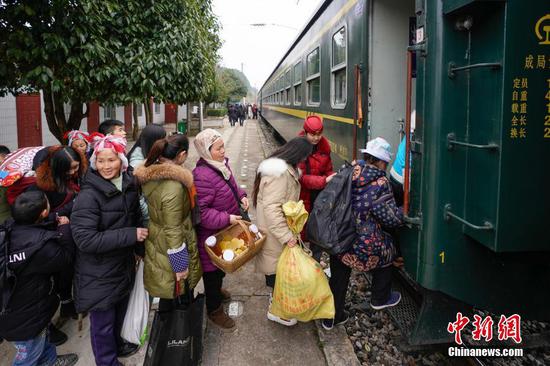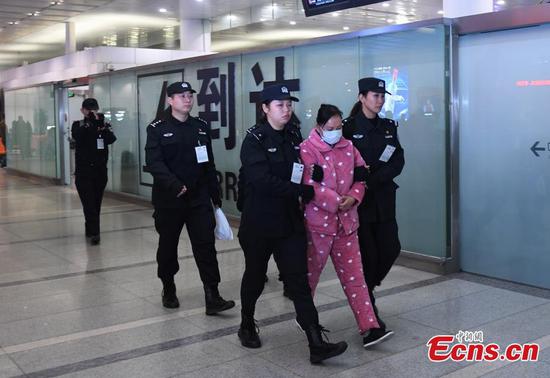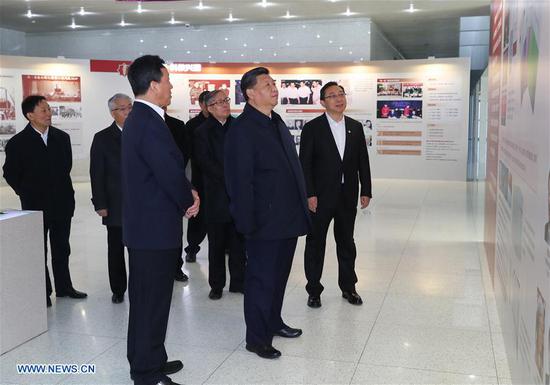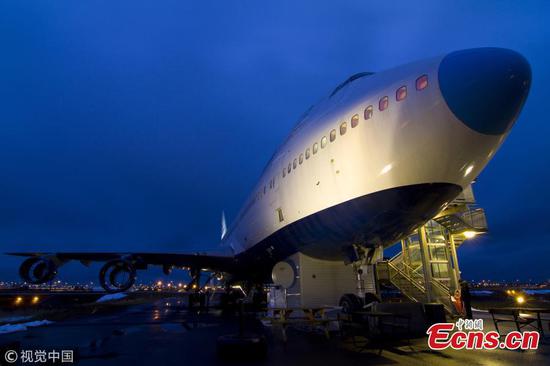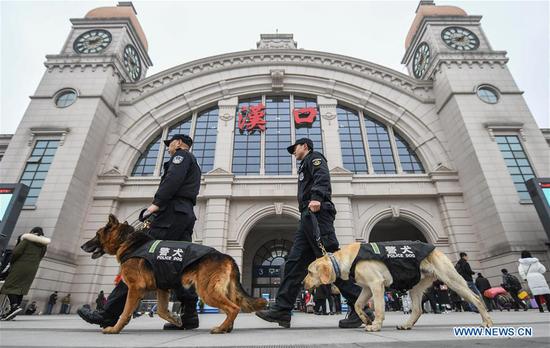
Job seekers speak with employers at Hefei University in Hefei, Anhui Province, on Saturday at the sixth national autumn roving job fair for college graduates. (Photo/Xinhua)
An increasing number of young Chinese graduates are leaving Beijing for other first-tier cities or even new first-tier cities, National Business Daily reported.
The conclusion was based on 11 graduate employment quality reports from C9, a bloc of nine reputed Chinese universities, including Tsinghua University and Peking University, as well as Wuhan University and University of Electronic Science and Technology of China.
For some Beijing graduates, working in the capital is not their first choice anymore.
The proportion of graduates from Peking University choosing to work in Beijing fell continually over the past three years. In 2018, the figure fell to 39.47 percent, compared with 41.68 percent in 2017 and 46.2 percent in 2016.
While in Tsinghua University, the situation is quite similar. Last year, the proportion of undergraduate, postgraduate and doctoral students choosing to work in Beijing fell to 17.3 percent, 39.9 percent and 49.7 percent respectively, from 20.3 percent, 47.7 percent and 50.4 percent in 2016.
On one hand, the high cost of living, conditions and traffic congestion factors are affecting university graduates' choices, said Li Qiang, a senior career consultant at the online recruitment platform Zhaopin.com.
On the other hand, it means other cities including first-tier cities such as Shanghai and Guangzhou, and even some new first-tier cities have more opportunities, Li added.
In Shanghai, more than half the graduates from the two top universities Fudan University and Shanghai Jiao Tong University choose to work in the city. In Fudan University, the figure reached a high of 73.86 percent.
Notably, the financial sector has become the most attractive industry for university graduates, and 23.44 percent chose to work in this sector, in line with Shanghai's position as an international financial center.
Meanwhile, a growing number of C9 graduates choose to work in South China's Guangdong province.
Take Peking University as an example. Last year, the proportion of graduates choosing to work in Guangdong rose to 21.94 percent from 18.58 percent in 2016. Among them, Shenzhen is a bright spot. In 2018, a total of 472 graduates chose to work in Shenzhen, ranking second only behind Beijing.
Furthermore, some new first-tier cities, such as Wuhan and Chengdu, are attracting more graduates.
Since 2017, Wuhan, capital of Hubei province, which has the highest number of university students and the highest outflow of graduates in China, has implemented a talent recruitment campaign to lure ambitious young people.
Previously, Hubei Provincial Governor Wang Xiaodong said while delivering the annual government work report that more than 60 percent of university and college graduates worked in the province last year.
In Chengdu, the proportion of graduates from University of Electronic Science and Technology of China choosing to work in Sichuan province rose to 43.04 percent last year, compared with 40.48 percent in 2017 and 38.05 percent in 2016.
New first-tier cities have become a new magnetic field to attract talents. According to the annual College Graduates' Employment Report issued in June, 40.18 percent of college graduates chose to work in new first-tier cities, up 2.68 percent year-on-year.



















